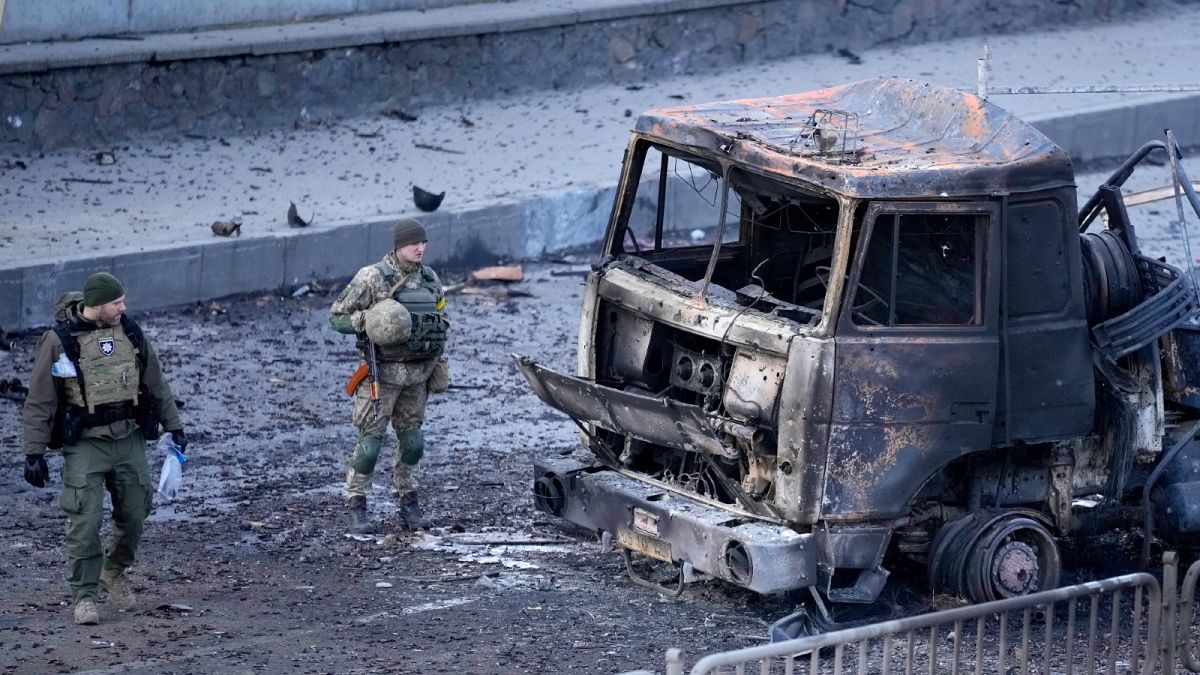Ian Bremmer says Europe importing Russian gas is "becoming a very, very challenging behaviour to continue".
Economic sanctions are having "no impact" on Russian behaviour in Ukraine, a US analyst has told Euronews.
Ian Bremmer, president of Eurasia Group, a geopolitical risk firm, made the claim after the European Union proposed banning Russian coal imports into the bloc.
"Economic sanctions continue to escalate every day from the United States, Europe and other wealthy countries," said Bremmer.
"But it is not changing Russian behaviour one iota."
Other experts have told Euronews that until Brussels targets Russian gas imports into the EU, sanctions will not have "a real impact".
Bremmer went on to tell Euronews that "a lot" of defensive aid from NATO and "Ukrainian courage" had been more effective in influencing Russia's invasion.
"Frankly, the more meaningful response has been the Stinger missiles, the drones, it's been the Javelin anti-tank missiles ... tanks," he said.
This, says Bremmer, is the reason why Russia has steered away from "trying to remove Zelenskyy from power" and "take over Kyiv", towards focusing on territory in the east of Ukraine.
In April, European Commission president Ursula von der Leyen announced that the European Union (EU) would finance the purchase and delivery of arms to Ukraine worth €450 million.
This was followed by an additional $800 million (€734 million) in security assistance from the US in March.
Bremmer said NATO had stopped short of sending fighter jets to Ukraine, as there were serious questions around whether the Ukrainians could operate and field them effectively.
"You don't want to send those weapons to Ukraine and then have them completely not be effective," said Bremmer. "That makes the West look weaker."
Bremmer was also sceptical of the effect cutting off Russian energy supplies to Europe would have in the near term.
"I don't think that's going to suddenly stop the Russians from attacking," he said. "The impact on their war coffers isn't suddenly going to make their military seize up."
He added that European and US populations "would not be willing to take the economic hit" if imports of Russian gas were stopped.
Pressure has been mounting on governments across the EU and US to introduce energy embargos on Russia, following allegations Russian troops committed war crimes in Bucha by killing Ukrainian civilians. Moscow denies the claim.
There has been resistance to an outright ban on Russian energy imports, particularly in Germany, with warnings that it could tank already fragile economies across the EU.
Responding to Ukrainian President Zelenskyy's remarks to the UN yesterday that Russian leaders must face a war crimes tribunal, Bremmer cautioned against placing faith in diplomatic solutions.
"The [UN] Security Council is not where you're going to resolve any of this," he said. "You will resolve it between NATO and the Russians and, of course, with the Ukrainians themselves."
But Bremmer said international efforts to halt Russian energy imports were still the "right thing" to do.
"When you have a government that is credibly being accused of war crimes [...] the fact that there is huge amounts of money going to Russia being paid for by Europe," he says, "I think that is becoming a very, very challenging behaviour to continue.
"Is it in the next couple of weeks or is it the next couple of months? But sooner or later this gas is being cut off," Bremmer added.
